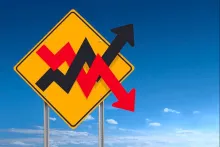I Don't Trust The "Stock Market" & Neither Should You! - 2nd Quarter 2020
Dear Valued client,
I urge you to please stay with me for a minute before you read too deep into the title of this piece. The first quarter of 2020 has been full of devastating surprises. One of modern history’s worst wildfires plagued Australia in January. America lost one of sports’ most beloved icons with Kobe Bryant in February. March has now come and gone bringing with it one of the most acutely devastating health crises to the world economy in history. The last three weeks have given me chance to sympathize with those who are at the mercy of this chaotic phenomenon as well as embrace gratitude for everything I have in this life. I think about the people who have lost their lives so suddenly and without preparation for this pandemic as well as those who have lost their livelihood due to job cuts and stagnant commerce. As a financial advisor, the most obvious impact that the Coronavirus has had on the world is to my clients and their investments. It’s been watching all these events unfold in the comfort of my own home that has forced me to search for the proverbial light at the end of the tunnel that I would like to share with you here and now.
Over the years, I’ve met with thousands of teachers throughout Atlanta’s public school systems. It has been one of the most rewarding and humbling careers I could have ever stepped into right out of school and I continue to hold a sentimental outlook to my daily routine as I meet with people from all backgrounds and walks of life. Educating people on saving and investing money requires different approaches every time I sit down with someone. For many young teachers, it means providing an introduction to the concept of how a mutual fund works and explaining the magical force of “compound interest” on the growth of your investments throughout one’s working career. For others that are close to retirement, it means coming up with a more comprehensive plan to ensure retirement income security.
One of the most fascinating observations I’ve made over the years is not that people have different levels of knowledge concerning what they KNOW about investing, but how they THINK about investing. It’s that very distinction that compels me to bring up a topic that needs to be addressed in today’s current chaotic environment. The point I wish to drive home regarding a diversified investment portfolio is simply this…you are invested in stocks, NOT the “stock market.” It is very important to remember that your hard-earned investments represent shares of companies who run fantastic operations, who have grown and will continue to grow despite global economic setbacks, who pay consistent dividends and who have proven to be valued approximately as their price indicates at MOST any given point in time.
The “stock market,” albeit a generally fair indicator of the price at which most of these great companies should fetch, can at times go into seizure-like swings where the prices of companies can either be valued far too high or far too low based on short-term circumstances, momentum from trading technology and the herd mentality of the general public fueled by “FOMO” and fear. For all of these reasons, I truly believe we are in the midst of an era where the pricing pendulum has swung to a point where there is an enormous opportunity to buy ownership in amazing companies at prices that are for lack of better words “on sale”. There’s no sugar-coating the short-term drop in existing portfolios across almost every investable asset class as we sit smack dab in the eye of this global health storm, but there’s also almost always opportunity in the face of chaos. This is the exact reason that I don’t trust the “stock market,” and neither should you.
Let’s take a look back at just the last 20 years to examine another “unprecedented” event that sent the stock market into a different kind of hysteria. Let’s jump back in our proverbial time machine to the infamous “tech bubble” which began in the mid-90’s and eventually fell from its artificial ledge, reaching its ultimate demise in 2002. With the advent of the internet came a brave new world of commerce and lifestyle opportunities never-before seen by humans. This led to a swath of new tech companies entering the marketplace and a feeding frenzy of hungry investors on the heels of the most amazing technology the world had ever seen. The frosting on the cake to this over-zealous stock-trading climate was the new stock-trading abilities made available to consumers via the new and accessible internet that would boost trading activity like never-before-seen, ultimately leading to many of these tech startups being over-valued far above their underlying fundamentals. These three elements created the perfect storm for an eventual implosion in the stock market which was subsequently followed by “The Great Recession.” It would take nearly a decade for the overall stock market to regain its pricing levels from 1999-2000, but investors who stayed invested in strong companies would be rewarded by receiving dividends on their continued investments as well as an enormous gain on their capital as the S&P 500 index would grow 200% over the next 15 years from 2002 – 2017.
One might ask, “How exactly does the internet bubble relate to the current Coronavirus? I mean, look at the stark contrast of events!” That’s a wonderful question. How does the hyper-valuation of companies related to a brand-new world-changing technology compare to a world-wide health pandemic effectively bringing the entire world economy to a halt? To be honest, the events themselves aren’t really the same at all. What IS the same in both situations is the presence of resilient investable companies who were undervalued by the “stock market” during both events because of sensational, short-term circumstances. The tech bubble brought with it an artificial feeding frenzy and stock price surge whereby most investors “couldn’t lose” by investing in tech stocks while the majority of strong, sustainable companies were neglected and sold off in favor of their lustrous tech startup peers. When reality finally caught up, intelligent investors were rewarded.
“A stock is not just a ticker symbol or an electronic blip; it is an ownership interest in an actual business, with an underlying value that does not depend on its share price.”
― Benjamin Graham, The Intelligent Investor
We now find ourselves in a time of panic when most investors “can’t win” as stock prices and asset classes have suffered across the board as the world deals with a health crisis for which it was never prepared and bringing with it an inevitable short-term squeeze on the economy. The events that sit twenty years apart from one another are very different, but the phenomenon is very much the same. We once again have an opportunity to invest in great companies whose prices have taken a dive due to an “unprecedented” event. There’s no doubt that the global economy will suffer consequences because of the Coronavirus but does that mean that these structurally-sound companies won’t recover or that commerce as we know it will cease to exist??? Just as the stock market worked its way up to unjustifiable pricing levels with the tech bubble, we find ourselves twenty years later watching the fastest bear market in history. The day-to-day volatility of the market is even wilder in today’s climate as it’s driven by instantaneous news headlines and short- term trading algorithms that are more near-sighted than most of us can comprehend.
There has never been a more important time to remember that you are invested in strong, resilient companies. At any given point in time those companies have a stock price that’s valued right about where it should be. The internet bubble demonstrated an era where the broad markets were sent up to pricing levels that were in fact far from accurate. I believe the current predicament we find ourselves in, represents the proverbial pendulum swaying to the opposite extreme of the spectrum and bringing with it an array of opportunities for those with the proper investment time frame and resolve. And that, folks, is why I don’t trust the “stock market” and neither should you.
CRN-3013480-032620


